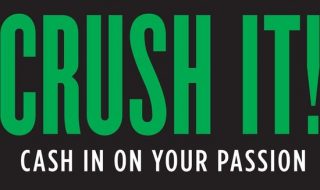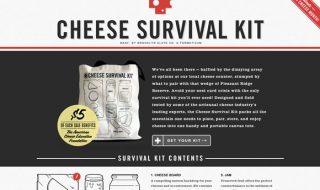The gig economy has been growing exponentially over the last several years. In 2017, 55 million Americans worked as freelancers or contractors in the gig economy, and that number has only continued to grow. In light of the COVID-19 pandemic, more people than ever are considering ways in which they can start a side hustle or begin a career as a freelancer if they lost their jobs.
But, many people who still have full-time jobs also think about becoming freelancers, and there are plenty of reasons why. Working as a contractor allows you more flexibility. You can set your own hours, work with the clients you want, and the money you can earn is virtually limitless as long as you build up a steady client base.
There are some potential drawbacks and risks. Freelancers often have to save money or limit themselves to a budget when they’re first starting out. It can take a while to find repeat clients. You will also have to pay for your own healthcare insurance. But, most people love the idea of being their own boss. So, the risks outweigh the rewards.
If you’re still in a full-time job but you want to become a freelancer, there are a few things you can put in motion to make it happen. A good rule of thumb is not to fully dive into freelancing until you know you’re going to be able to make a living. While it might feel as though you’re working two full-time jobs for a while, they payoff will be worth it.
So, how can you develop a successful freelance career when you still have a fulltime job?
Make Measurable Goals

It’s not enough to just say that you want to become a freelancer. You need to have tangible, realistic goals and expectations. They should be written down almost as a sort of ‘business plan’ for yourself.
It’s important to think of yourself that way when you become a freelancer. Essentially, you will be your own business and brand. So, what do you want to accomplish? If you don’t have goals in mind, you’ll have a hard time feeling like you’re moving forward as a freelancer.
Obviously, your goals will be personal to your needs and desires. But, some common goals to consider include:
- Do you want to become a full-time freelancer or just use it as a source of extra income?
- How much income you want to make per month.
- How much you will need to be consistently making to quit your current job.
- How many clients you want.
- What sort of work schedule you want.
Make sure your goals are as specific as possible, so you can put numbers and dates next to them. Additionally, make sure they’re attainable. There is nothing wrong with dreaming big and having huge goals for yourself. But, if you constantly feel as though your goals are out of reach, you will lose your motivation and give up on them quickly.
Understand What’s Profitable

You can become a contractor with just about any skill. There are millions of freelance writers in the world, as well as graphic designers. But, some of the other most popular freelance categories include:
- Software development
- Content marketing
- Translator
- SEO professional
- Photographer/videographer
- PR
- Virtual assistant
- Social media marketing
Instead of focusing on what is popular, try to focus instead on what is profitable. How can you use your skills in a freelance setting to make money?
This is an interesting question, since there are so many freelancers in the world. Let’s look at writing, for an example. With millions of writers across the globe, you already have steady competition before you even get started. If you have a full-time job already, your competition can feel even heavier, since you can’t devote as much time as you might like to freelancing.
Because of competition, many new freelancers start out by short-changing themselves, or taking on extremely low-paying jobs just to get their foot in the door. You don’t have to do this. More often than not, it will get you nowhere, and the people you do work for will expect you to keep your prices unreasonably low.
Instead of fighting your competition, thin it out. If you’re a writer and you don’t want to directly compete with millions of other writers, find a niche. Maybe you only write infographics or social media content. Or, maybe you want to focus on writing product reviews.
By picking a more specific area of writing, you’re reducing the amount of competition, and you can hone in on one particular skill. As a result, you’ll be able to charge your clients more.
Once you’ve discovered your niche and built upon it, you can start to branch out into other areas of writing. By then, you will have a steady client base and a reputation, and more people are likely to call on you for other jobs.
Price Things Strategically

One of the biggest problems new freelancers face when they’re first starting out is how to price their services.
The good news? You don’t just have to guess when it comes to what you should be charging. There are plenty of resources online that can give you a good idea of what’s fair. Remember, you should be pricing your services based on what you’re able to deliver. Don’t just look at what your competitors are charging. Instead, look at what you’re worth.
If you want a good place to start when it comes to pricing your services, look back at your goals. How much will you need to make each month in order to be financially stable? Did you have a specific monetary goal in mind that you have to reach before you leave your full-time job? How can you set your prices to make that a possibility?
When you’re setting your prices, you need to keep your own time in mind. If you are going to consistently deliver quality services to your clients, then don’t sell yourself short. Charge what you’re worth.
Build Your Portfolio
It’s an absolute necessity to have a website with a high-quality portfolio if you want to get noticed as a freelancer. Thankfully, creating a website is easier than ever. There are many drag-and-drop website platforms that don’t require you to have any coding knowledge.
Having a website will show potential clients that you’re serious about what you do. Plus, if you feature your portfolio prominently and show a wide range of work, your clients will be able to decide whether you have the right tone and writing style to fit their needs. Your portfolio is your sales pitch, and it will work for you without you having to say a word.
Thankfully, a website is something you can build relatively quickly in your free time, so you can put it together during your time off from work, and continue to add to your portfolio as you get more clients to work with. There are other things you should include on your website, too, like:
- Your contact information in an easy-to-find location
- Testimonials from past clients
- Mentions of clients (business logos, etc.)
- A list of your skills and areas of expertise
It’s not enough just to create a website. There are millions of sites on the Internet, and it’s far too easy for them to get ‘lost in the crowd’ if you don’t take the time to promote them. So, learn the basics of SEO and how to optimize your website. Share it as much as possible on social media, and encourage your clients to share it, too.
Be Picky With Your First Clients

When you’re still working a full-time job, you probably won’t want to take on a dozen clients all at once. So, choose your first clients carefully. Yes, it’s okay to be a little picky. Think about the potential clients who want to work with you. How will they grow your business? How will a piece for them look on your website?
As you transition from your full-time job to full-time freelancing, you can be a bit freer when it comes to the clients you work with. But, when you’re starting out, remember that everything you do needs to be in the effort of growing your client base. Working with clients that are established, popular, and have a big following can make a difference in how quickly you’ll see that growth.
If you want to start a freelance career, it’s normal to want to get things going right away! But, building up a client base takes time. The smarter thing to do is to remain at your full-time job until you’re able to reach some of your freelance goals and turn it into a viable career. Let these tips help you along your way, and before long you’ll be a full-time freelancer, and you will finally be able to be your own boss!
Consider the Risks
Any good business plan has a section regarding potential risks and how they should be managed. Since you’re starting your own business as a freelancer, it’s just as important to consider those risks. Some of the most common ones include:
- Unstable income: You might have a difficult time calculating exactly how much you’ll bring in each month. Unfortunately, freelancers may find themselves at a greater risk of going into debt if they aren’t able to pick up consistent clients or they aren’t charging enough. Going from a full-time job with consistent pay to a freelance career with sporadic pay can be challenging, and you may have a hard time managing your finances at first. Although this isn’t meant to scare you away from the idea of freelancing, it’s important to understand how you will balance things out. If you’re already struggling with debt and you’re looking for a fresh start before your career gets off the ground, consider a bankruptcy attorney. Contact Leinart Law for a bankruptcy lawyer that can help to get you in a better financial position even before you start your freelance career.
- Work-life balance: When you work from home, it can sometimes be hard to separate your life from your job. It’s a good idea to have a separate office or work space. But, it can be far too tempting to work all hours of the night, on weekends, etc.
- No benefits: When you work a full-time job, you’re usually given some type of health insurance coverage and additional benefits. As a freelancer, you’ll have to take care of those things on your own, which can be stressful and costly.
If you want to start a freelance career, it’s normal to want to get things going right away! But, building up a client base takes time. The smarter thing to do is to remain at your full-time job until you’re able to reach some of your freelance goals and turn it into a viable career. Let these tips help you along your way, and before long you’ll be a full-time freelancer, and you will finally be able to be your own boss!





